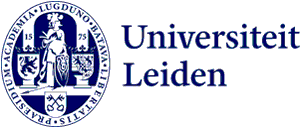Lecture: How Social Ties are Critical during Crises
Join this lecture from professor Daniel Aldrich at the Spanish Steps in Wijnhaven on Wednesday 3 November. Dr. Sanneke Kuipers, associate professor in Crisis Governance, will be the moderator of the lecture and she and professor Aldrich give us a preview of the event.
Daniel Aldrich: What will be the key message of your lecture?
‘We all face shocks all the time - COVID19, floods, even fires and terrorist attack. What should we do to get ready for them? How should we recover from them? I will talk both from my personal experience (as a survivor of Hurricane Katrina in New Orleans) and as a scholar who has traveled the world studying the ways that we survive and thrive during shocks and crises.’
Daniel Aldrich: What do you hope to achieve with your lecture with the students?
‘I hope that students walk away from our conversation with a recognition of the power of their social networks - bonding, bridging, and linking social ties - along with concrete ways that they can work to make their communities and neighborhoods more connected and cohesive.’
Sanneke Kuipers: Why did you want to organize this lecture? What is your main goal?
‘This lecture offers a great opportunity for students interested in resilience and sustainability of local communities and their efforts to reduce disaster risks. Professor Aldrich’s research shows that preparation for disasters is much less effective if we only focus on infrastructure and physical protection to prevent disasters from occurring. We should also look very much to the social fabric of local communities since social ties explain for communities across the globe why some recover quickly or are even impacted less than others. My main goal is to bring this exciting research to the attention of students beyond the CSM master students that I teach on Crisis Governance, for whom this is key literature as well.’
Sanneke Kuipers: Why should students join this lecture and what can they learn from professor Aldrich?
‘They should join to learn about insights on risk and crisis management that apply to geographic areas as different as North America, Europe and East Asia. To gain insights on how people, their communities and their social capital matter most in the face of disaster, and how even they themselves can play a role in this. Professor Aldrich’s work is exemplary in many ways: it is a great example of how our research can be interdisciplinary, multi-method, and bridging cultures at the same time. Daniel Aldrich adopts, enriches and builds forth on insights on social capital from sociology and political science by applying these to disaster stricken areas, showing effectively how communities benefit from different forms of social ties, how it makes them more resilient to crises and disasters, and how we can research this.'
About Daniel Aldrich
An award winning author, Aldrich has published five books including Building Resilience and Black Wave, more than 70 peer-reviewed articles, and written op-eds for the New York Times, CNN, HuffPost, and many other media outlets. He has spent more than 5 years in India, Japan, and Africa carrying out fieldwork and his work has been funded by the Fulbright Foundation, the National Science Foundation, the Abe Foundation, and the Japan Foundation, among other institutions and was the 2021 Klein Lecturer at Northeastern University.
Watch the lecture
Due to the selected cookie settings, we cannot show this video here.
Watch the video on the original website or